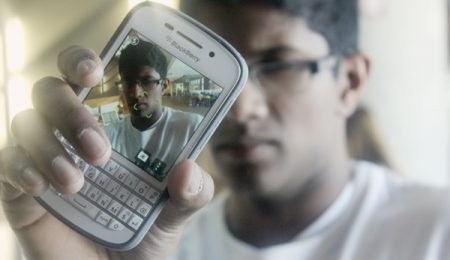Stop the slacktivism and start advocating
This article isn’t about the U.S. election. The U.S. election was a catalyst for us writing it, but no matter who won on Wednesday night, there would’ve been people fear-mongering, commentating, and condemning the results, — those whose activism and politics exists largely in the digital realm. As two student activists and organizers at the U of O, we wanted to talk to those people.
Since the election, people you have never seen posting or commenting on any “political issue” suddenly are grieving the election results, fearing what is to come in our own country. But for many of them, this is all they do to engage in politics. Instagram posts and reshares are the main form of engagement for too many.
This is slacktivism hard at work; politics through signing an online petition and liking a post, reposting AI images on their stories or typing up a few words of anger — rather than voting, knocking on doors, talking to their friends, families and neighbours, organizing their workplaces or actually challenging capitalism.
The act of knowing the right things, feeling the right emotions, sharing the correct Instagram graphics and using the correct language is, in the end, irrelevant. Your radical knowledge without revolutionary organizing is ultimately meaningless to advancing the causes you care about and changing the world.
Your radicalization and praxis should not stop at ‘educating’ yourself and the seven people who will actually read your twelve-part story rant — it must be accompanied by action, otherwise, you are speaking for movements you do not truly know, and sacrificing and contributing nothing to them. The internet is one of many tools we can use to organize, but the sharing of infographics and rants is not organizing. Get involved in your community and the movements around you.
There’s a bigger problem with this youth disengagement. If you do not engage with a system that provides your everyday needs such as education, healthcare, and transportation, the problems with these services won’t go away. Everything will continue to fall apart. By not voting, not politically organizing, and simply reposting an infographic on your story, you remove your ability to change the system while still facing the consequences of its collapse.
Instead of fighting for a better future, you tell the system that you are willing to adapt to a worse one. This is a privileged and individualistic mindset that contributes to our politically apathetic culture. Your ability to disengage is felt most strongly by those less privileged than you, by those who are unable to engage themselves. Those working multiple jobs to feed their kids, those facing eviction or wage theft, those literally facing genocide — they don’t have the choice to disengage, why should you?
Many of the on-the-ground organizers, who have been organizing unions and tenants, knocking doors, working against systems of oppression like the police and prisons, are grieving the election results, but they’re continuing their radical work because they have to, because we can’t afford to fall victim to grief, anxiety, and hopelessness. In the words of union organizer Joe Hill, “don’t mourn, organize.”
Organizing needs to be embedded into youth culture. Asking your friend to go door-knocking for a better transit system for a few hours should be as normal as asking them to go thrifting. But there is a fear of looking stupid and doubts of its ineffectiveness because people want great and quick results for their efforts. The truth is, change takes time but it will come, and all it asks of you is to be patient and to keep going.
Ottawa is a city of organizers and politics, organizations like Horizon Ottawa, and ACORN Ottawa organize throughout the city. For instance, just last year, Horizon Ottawa and ACORN Ottawa succeeded in moving $30 million to the affordable housing budget at City Hall with support from city councillor Ariel Troster and others. This was accomplished through almost two years of engaged citizens canvassing and phone banking, protesting and strength across many communities.
On campus, groups the CJCUO, INSAF, the UONDP, and others organize actions like sit-ins, fundraisers, and canvassing, providing an easy on campus way for students to start getting organized.
Hopefully the American election can be a wake up call — a wake up to get out of bed and off Instagram, and to the streets. A lot of us haven’t engaged with politics in a while despite having a lot of opinions, you have a chance to change that. We must start fighting back, not online, but on the streets, at the doors, with our friends and our family who we disagree with. Reposting a graphic is easy, change is harder — but it’s possible.







